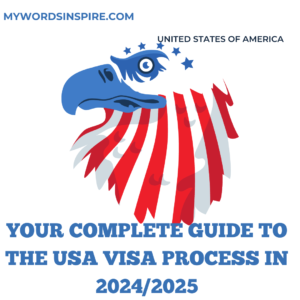
Are you dreaming of a new life in Canada? The Great White North offers numerous immigration programs that can turn your aspirations into reality.
From skilled workers to entrepreneurs, Canada welcomes individuals from diverse backgrounds to contribute to its vibrant society and thriving economy. In this article, you’ll discover various pathways to immigrate to Canada, including Express Entry, Provincial Nominee Programs, and family sponsorship options.
We’ll explore the eligibility requirements, application processes, and potential benefits of each program. Whether you’re seeking career opportunities, quality education, or a high standard of living, Canada’s immigration programs could be your ticket to a brighter future.

Free Travel to Canada: Immigration Programs
Canada offers several immigration programs that provide opportunities for individuals to travel and potentially settle in the country. While these programs don’t necessarily offer “free” travel, they do provide pathways for eligible candidates to move to Canada and potentially obtain permanent residency. Let’s explore some of the most popular immigration programs and their key features.
1. Express Entry System
The Express Entry system is Canada’s flagship immigration program, designed to attract skilled workers who can contribute to the country’s economy. This points-based system manages applications for three federal economic immigration programs:
- Federal Skilled Worker Program
- Federal Skilled Trades Program
- Canadian Experience Class
Under Express Entry, candidates create an online profile and are ranked based on factors such as age, education, work experience, and language proficiency. The highest-ranking candidates are invited to apply for permanent residence through regular draws.
While Express Entry doesn’t cover travel costs, it offers a streamlined process for skilled individuals to immigrate to Canada. Successful applicants can bring their families and enjoy the benefits of Canadian permanent residency, including access to healthcare and education.
2. Provincial Nominee Program (PNP)
The Provincial Nominee Program allows Canadian provinces and territories to nominate individuals who wish to immigrate to their region and have the skills to contribute to the local economy. Each province has its own streams and criteria for nomination, often targeting specific occupations or demographics.
Some PNP streams are aligned with Express Entry, while others operate independently. Nominated candidates may receive additional points in the Express Entry system or apply directly for permanent residence, depending on the specific program.
PNP can be an excellent option for those who have ties to a particular province or possess skills in high demand in certain regions. While it doesn’t cover travel expenses, it can significantly improve your chances of immigrating to Canada.
3. Atlantic Immigration Program (AIP)
The Atlantic Immigration Program is designed to address labor shortages in Canada’s Atlantic provinces: New Brunswick, Nova Scotia, Prince Edward Island, and Newfoundland and Labrador. This employer-driven program helps businesses in these regions hire qualified candidates for jobs they haven’t been able to fill locally.
To be eligible for the AIP, you must:
- Have a valid job offer from a designated employer in an Atlantic province
- Meet education and work experience requirements
- Prove language proficiency in English or French
- Show you have enough funds to support yourself and your family in Canada
While the AIP doesn’t provide free travel, it offers a unique opportunity to work and settle in Canada’s Atlantic region, with the support of a designated employer.
4. Rural and Northern Immigration Pilot (RNIP)
The Rural and Northern Immigration Pilot is a community-driven program designed to spread the benefits of economic immigration to smaller communities. It helps these communities attract and retain skilled workers by creating a path to permanent residence for eligible candidates.
Participating communities are located in Ontario, Manitoba, Saskatchewan, Alberta, and British Columbia. To be eligible, you must:
- Have a genuine job offer from an employer in a participating community
- Meet the program’s education and work experience requirements
- Intend to live in the community
Like other programs, RNIP doesn’t cover travel costs but provides a unique opportunity to experience life in Canada’s smaller communities while pursuing permanent residency.
While these immigration programs don’t offer free travel to Canada, they provide valuable pathways for eligible individuals to move to the country and potentially become permanent residents. Each program has its own requirements and benefits, so it’s essential to research thoroughly and choose the one that best fits your skills, experience, and goals. Remember to consult the official Immigration, Refugees and Citizenship Canada (IRCC) website for the most up-to-date information on these programs and their requirements.
READ ALSO: Fully Funded Visa Opportunities for International Interns
FAQs
What are the eligibility requirements for free travel to Canada?
While Canada doesn’t offer completely “free” travel, there are several immigration programs with reduced or waived fees. Eligibility requirements vary depending on the specific program, but generally include factors such as:
- Age (typically between 18-45 years old)
- Language proficiency in English or French
- Education level (usually a minimum of high school diploma)
- Work experience (often 1-3 years in a skilled occupation)
- Clean criminal record
- Good health status
It’s important to note that meeting these basic requirements doesn’t guarantee acceptance. Each program has its own specific criteria and point-based assessment system.
Which Canadian immigration programs offer reduced or waived fees?
Several programs provide opportunities for reduced-cost immigration:
- Express Entry: While not free, this system fast-tracks skilled workers and can lead to significant cost savings in the long run.
- Provincial Nominee Programs (PNPs): Some provinces offer streams with reduced application fees or additional support for certain occupations.
- Atlantic Immigration Pilot: This program partners with employers in Atlantic provinces and may offer job-specific fee waivers.
- Rural and Northern Immigration Pilot: Designed to bring skilled workers to specific communities, this program sometimes includes community support that can offset costs.
- Refugee and Humanitarian Programs: For those fleeing persecution or conflict, Canada offers programs with waived fees and additional settlement support.
How long does the immigration process typically take?
The timeline for Canadian immigration varies widely depending on the program and individual circumstances. Here are some general estimates:
- Express Entry: 6 months to 1 year
- Provincial Nominee Programs: 15-19 months
- Family Sponsorship: 12-36 months
- Refugee Claims: 1-2 years
Keep in mind that these are averages, and your personal timeline may differ. Factors that can impact processing times include the completeness of your application, background check complexities, and current application volumes.
Can I work or study while my immigration application is being processed?
In many cases, yes. Canada offers several options for work and study permits that can be pursued alongside your permanent residency application:
- Open Work Permit: Available to certain applicants, allowing you to work for any employer in Canada.
- Employer-Specific Work Permit: Tied to a specific job offer and employer.
- Study Permit: Allows you to enroll in designated learning institutions while your application is in process.
These temporary permits can provide valuable Canadian experience and help you integrate into the community while waiting for your permanent residency decision.
What support services are available for new immigrants in Canada?
Canada offers a robust network of support for newcomers, including:
- Settlement Services: Free programs to help with job searches, language training, and community integration.
- Healthcare: Access to the public healthcare system (after a short waiting period in most provinces).
- Education: Public education for children and subsidized language classes for adults.
- Housing Assistance: Some programs offer temporary housing or help finding long-term accommodation.
- Financial Support: Certain programs provide initial financial assistance to help with settlement costs.
Many of these services are provided through partnerships with local non-profit organizations and can significantly ease the transition to life in Canada.
Remember, while these programs aim to make immigration more accessible, there are still associated costs such as language tests, credential evaluations, and medical exams. Careful planning and research into specific program requirements will help you navigate the process more effectively.






